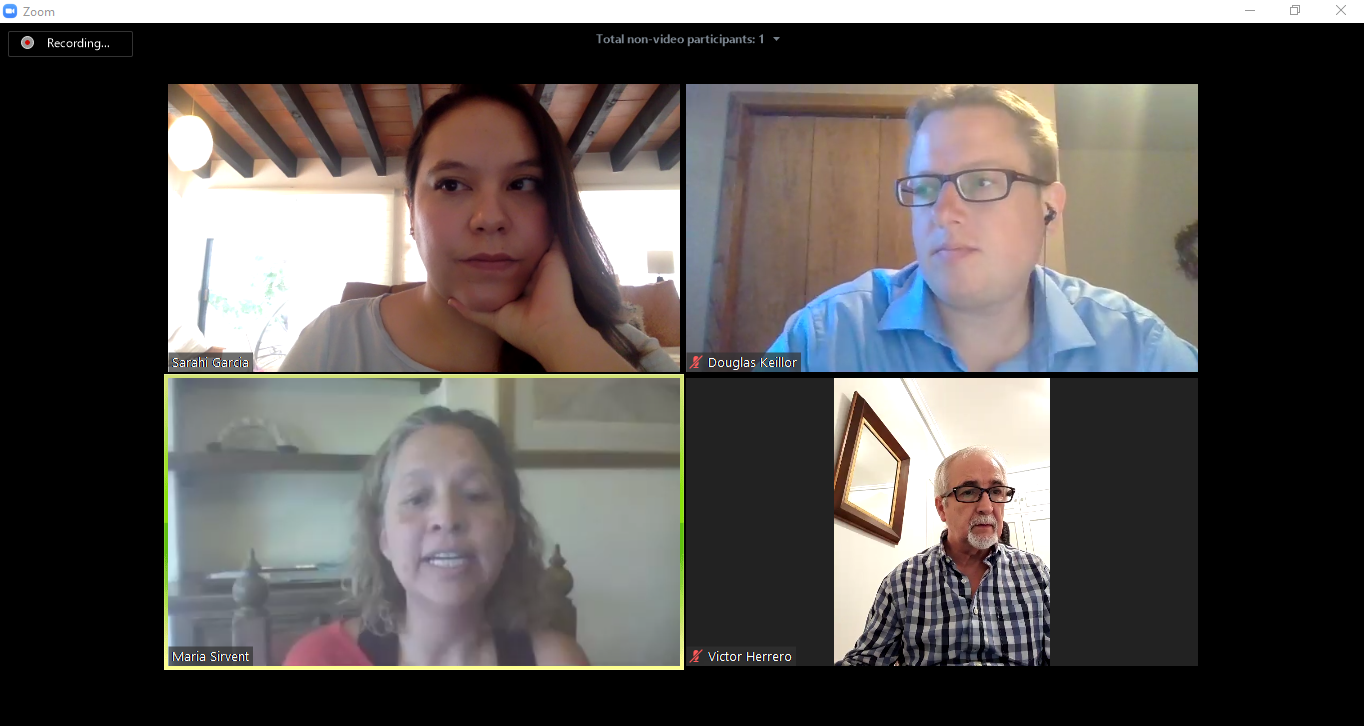“Information can save lives,” was the phrase used by. the founding member and director of Documenta A.C., María Sirvent, regarding transparency by the authorities in charge of the adolescent justice system in Mexico, in the face of the COVID-19 pandemic.
During our webinar titled : “COVID-19: Identifying the strengths of the adolescent justice system”, Sirvent expressed that an intelligent action on the part of the authorities is through an attitude that shares the information of the internment centers in regards to contagions or isolations caused by positive cases of COVID-19.
In the event we also had the participation of the career official of the Ministry of Justice in Spain with training in criminal law and adviser of justice for children in Latin America by Terre des hommes, Víctor Herrero. The panelist commented that when the authorities hide data regarding the state of health of young people in detention centers, they violate their fundamental rights.
This is because by hiding this type of information from adolescents, they generate great anguish for not knowing what is happening around them, as well as stress and fear that can result in violent behaviors that lead to a problem added to those which they already face.
He affirmed that if the centers decide to take a preventive measure against the pandemic, such as isolation, this decision must be clearly communicated to the inmates, because what they need at the moment is reliable information.
“Young people have the right to life and we have to take care of it. A very important part of it is their health. That is why we must explain what is happening, so that they do not feel that extra care is a punishment within another punishment. They have to be told what is happening so that they do not resent it, “he added.
Our founder and executive director, Douglas Keillor, said that the detention centers “are not in a bubble”, but are part of a community and the data on this is not being shared, which means ignoring a large part of the COVID-19 chain.
“For the benefit of transparent protocols, we must consider that we have to know what really happens within the centers, in order to know how society can collaborate. We need to share the good practices of the country, but for this we need data that allows us to unite efforts and be able to meet the needs at their core, “he said.
For her part, our National Project Director, Sarahi García shared the collective effort between JJAI, Documenta, Fair Trials and the Northwestern Law School to collect information in Mexico and other Latin American countries and save lives through information..
This activity is the sixth in a series that we will be carrying out with experts in the area. For more information you can follow us on our social networks, or write to us at info@jjadvocates.org
It should be noted that the three surveys carried out by the aforementioned collective effort are:
- The questionnaire addressed to family and / or companions of adolescents in detention: https://tinyurl.com/ydd5sr9y
- The questionnaire addressed to Holders of detention centers: http://tiny.cc/8vxynz
- And the questionnaire addressed to operating authorities of the Comprehensive Justice System for Adolescents (judges, magistrates and public defenders specialized in justice for adolescents): http://tiny.cc/d0xynz

